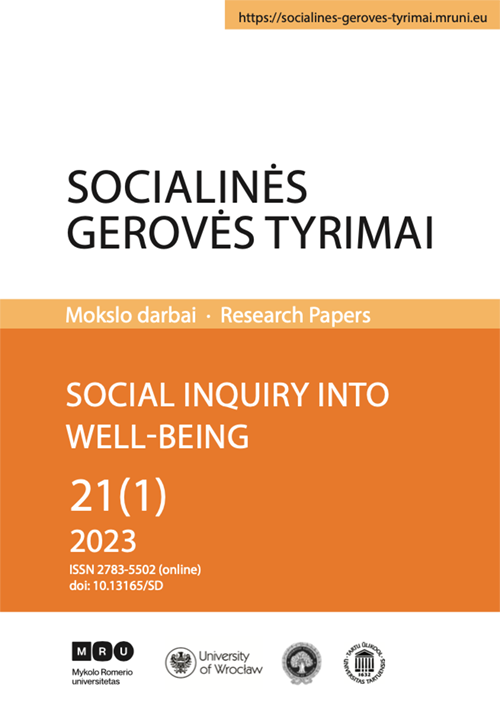YOUTH IN THE BALTIC STATES – LEAVING OR NOT?
##plugins.themes.bootstrap3.article.main##
Abstract
According to statistics, the number of young people aged 15 to 29 in the Baltic States
has decreased considerably in the past decade. As this age group is around one sixth of the
population in Estonia, Latvia, and Lithuania, this trend is significant, and represents a risk
from a demographic, nationality, security, and financial point of view. The population of
the Baltic States is currently subject to a higher risk of multidimensional poverty than the
populations of other EU countries (Voronov et al., 2020). Moving out of these countries
is not forbidden, but in an ideal world young people would return, which is not always
the case. As migration processes can be influenced proactively, in this article the authors
analyze the situation and consider what could be done to maintain wellbeing, to keep the
younger generation in their home countries, and/or to attract them to return. Empirical
data comes from secondary data analysis: the authors conducted a content analysis of two
published reports. The aim is to focus on wellbeing and social-pedagogical prevention to
find answers to two questions: what influences emigration readiness, and can certain activities prevent emigration? As a conclusion of our analysis, the following is stressed: sometimes leaving is a tool for hope/attaining something better – for higher quality of wellbeing,
for example; however, some people just want to get away – they leave for the sake of leaving.
Both cases may be problematic – a social pedagogical preventive consultation could avoid
larger crises. The proactive approach may help to keep younger generations in the home
country and/or support their readiness to come back after study abroad.
##plugins.themes.bootstrap3.article.details##
Mykolas Romeris University retains copyright ownership and publishing rights. Authors contributing to Social Inquiry into Well-Being agree to publish their articles under a Creative Commons Attribution 4.0 International Public (CC BY) License.![]()







